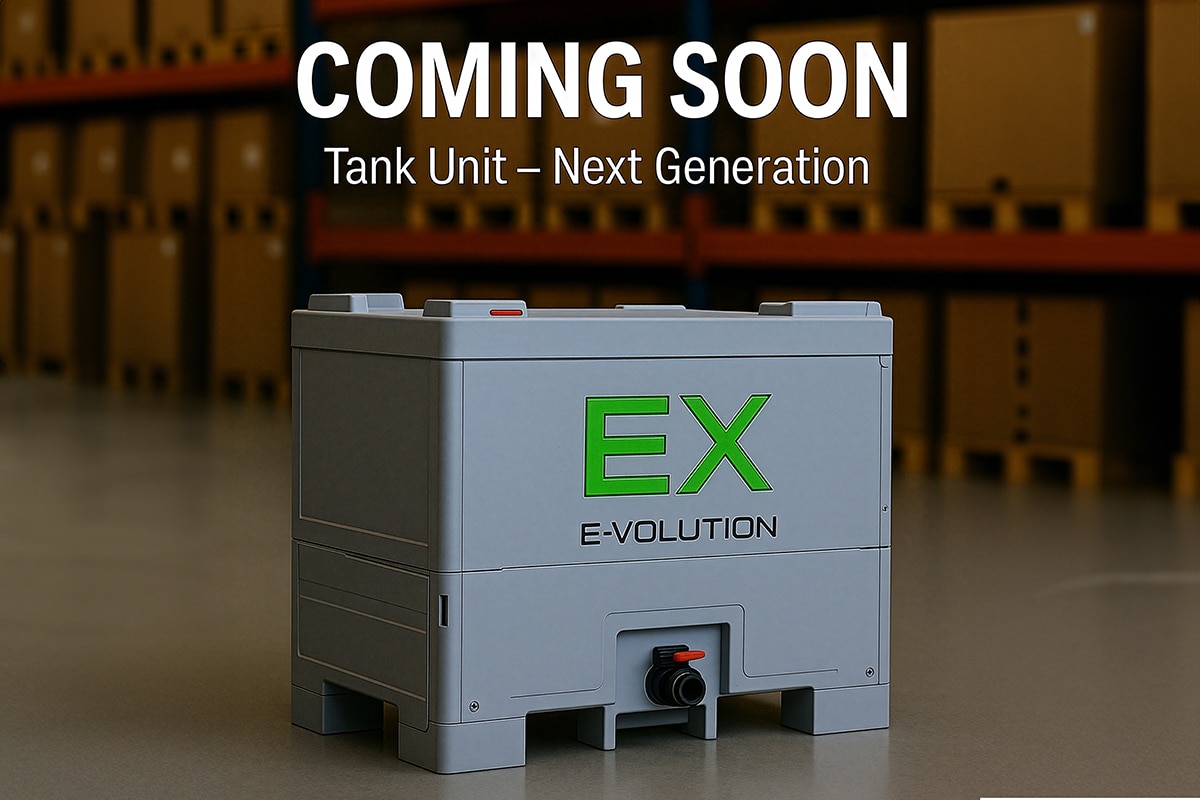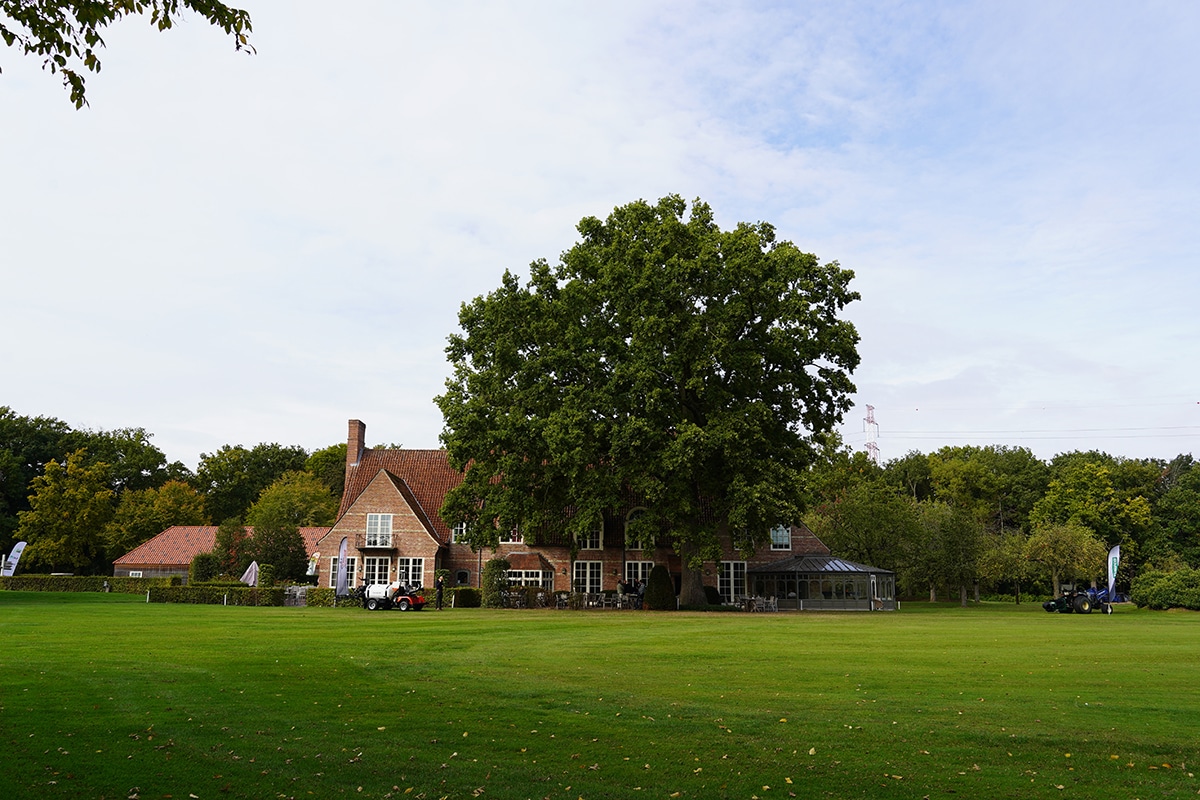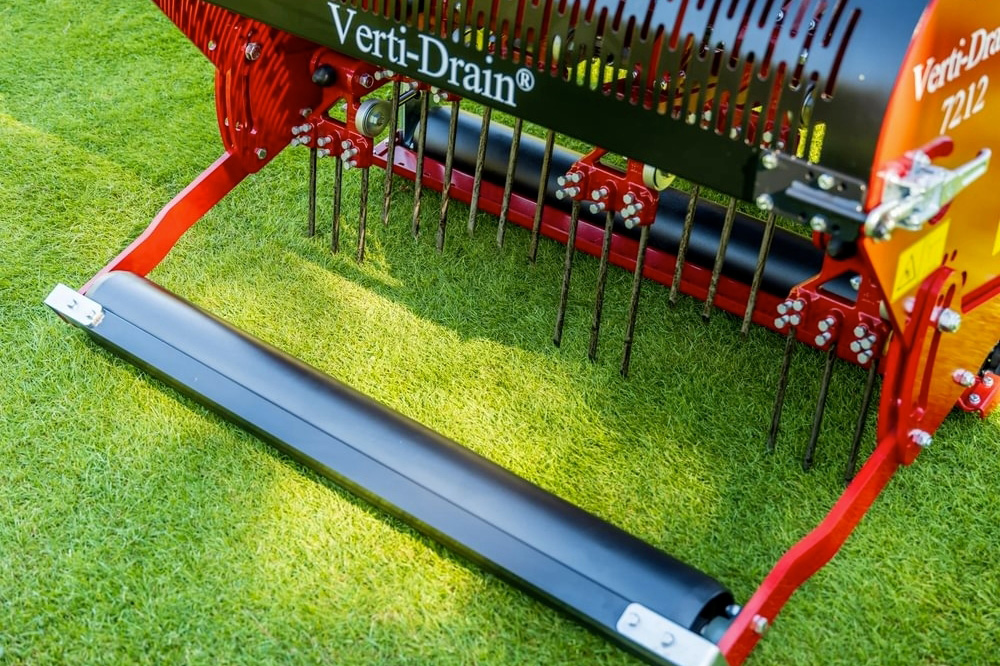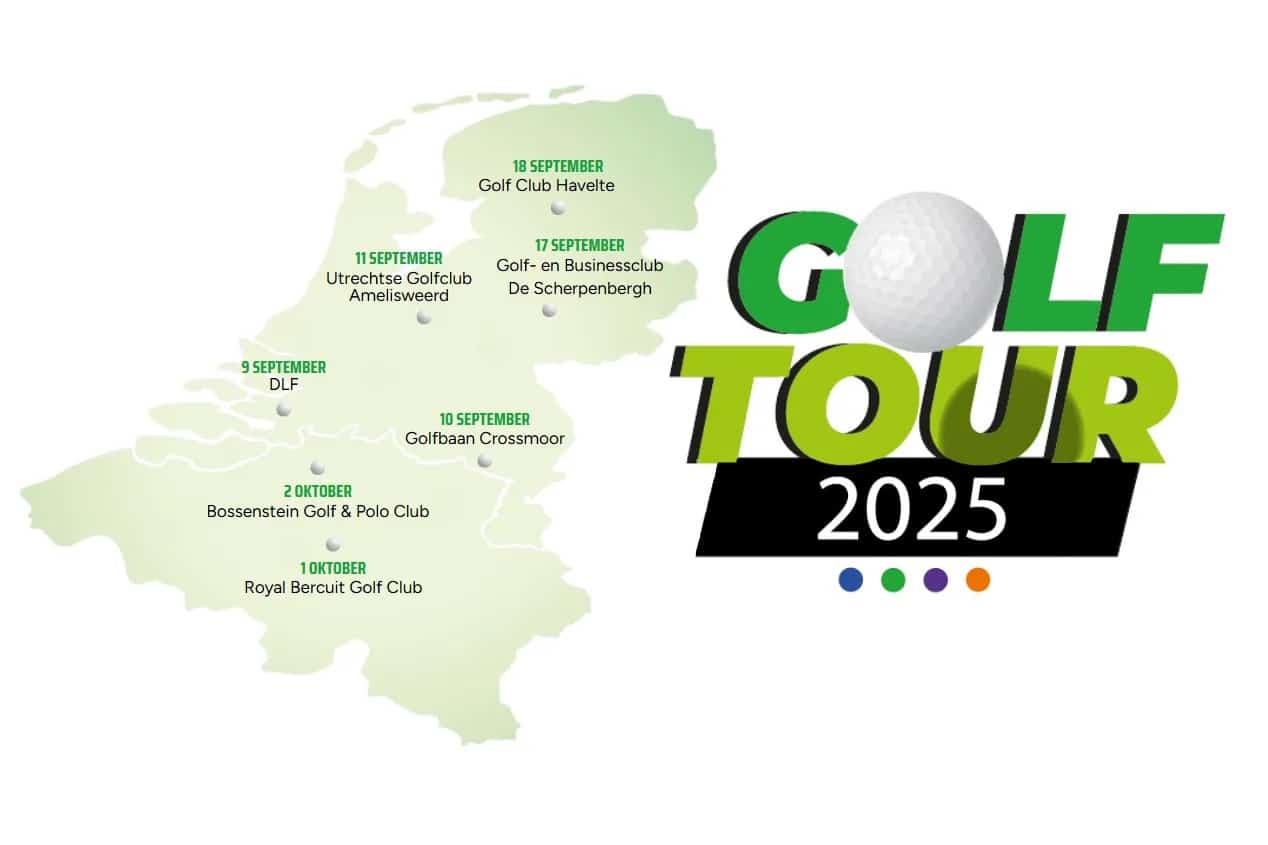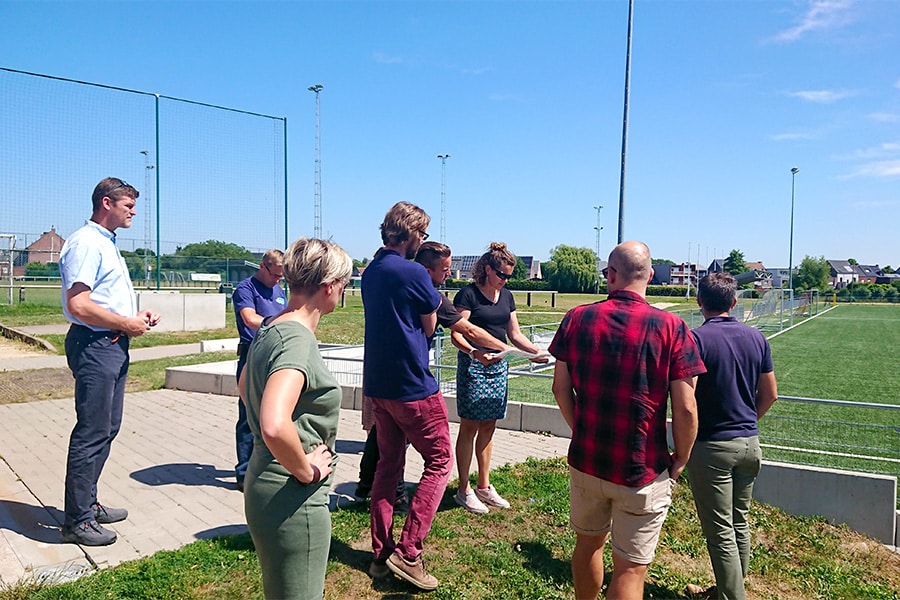
Green Deal sports domains hit cruising speed
Creation of market-based methodologies and techniques
Safe and quality sports infrastructure or sports space is crucial to allow everyone to move and play sports now, but also in the future. In order to offer this opportunity to the next generations as well, Flanders must take into account the environmental impact, resource needs and space use in terms of sports practice.
The Green Deal Sport domains is an effort commitment between governments and various partners with the aim of contributing to various sustainability objectives from the sports sector. And that is necessary, because Flanders has almost 10,000 outdoor sports domains, with a surface area of more than 17,500 hectares.
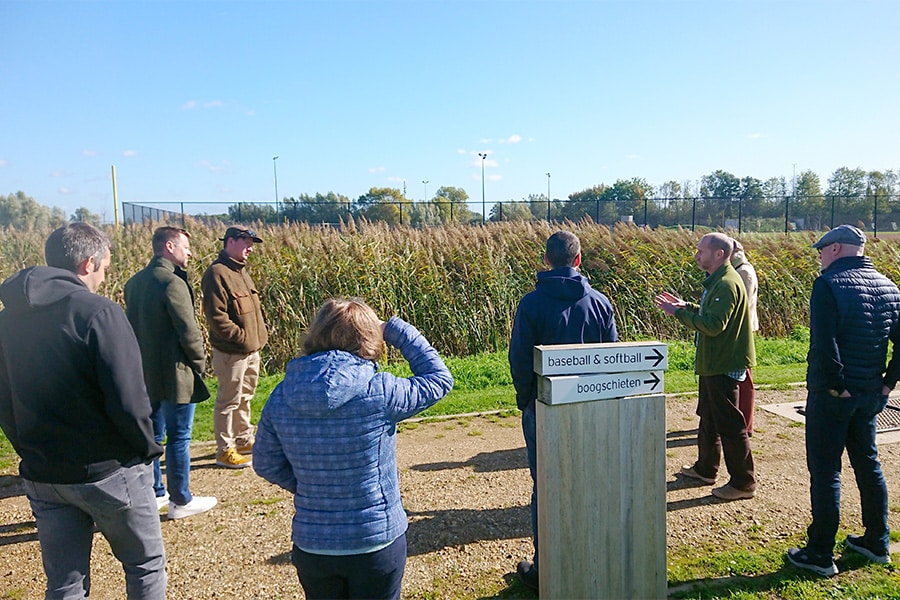
Sharing knowledge
The Green Deal Sports Domains - not to be confused with the European Green Deal! - deals with soil quality, the efficient water management of sports grounds, the reduction of pesticides, and the embedding of sports areas in so-called green-blue vein networks. The initiators of the Green Deal Sport domains are Sport Flanders and VMM as the government and also VSF and Netwerk Lokaal Sportbeleid as sector organizations. Together with private actors, they share their knowledge regarding the construction, maintenance and use of outdoor sports grounds, such as soccer fields, golf courses, gravel fields, natural grass or artificial turf fields.
David Nassen, project coordinator Green Deal Sports Domains: "It is essential to know that this deal stands for a shared ambition. Because we are all going together for quality sports domains, but with a positive impact on the environment. In terms of approach, we are resolutely going for action. Action between governments (local, Flemish and European) and people on the ground.
We are thinking here of managers of sports infrastructures, small clubs, large associations, but also contractors, designers... who can and want to set up pilot projects in this sector. Moreover, the Green Deal covers the entire ecosystem of our sports domains. Green, water, products, but also the whole chain of design, construction and management. In this way, we create future, economically profitable ways of working in the sector. We thereby develop new methodologies and techniques that will be common and marketable in the future."
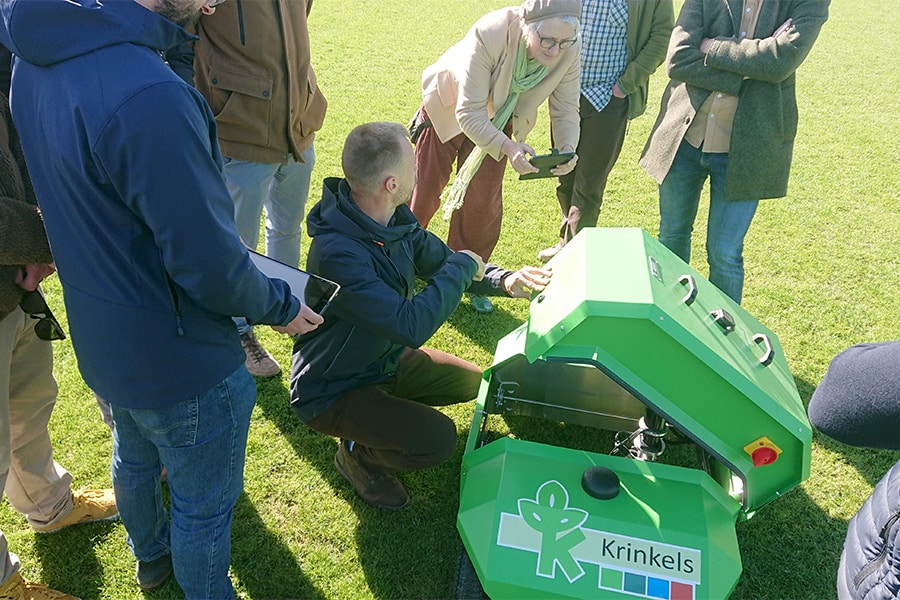
Bottom-up approach
Stefanie Pype, co-project coordinator of Green Deal Sport domains: "In the meantime, some striking cases have already been set up. Among others, Farys - manager of public sports grounds - and Krinkels are conducting advanced tests with Milati's weed robots. Some adjustments still need to be made, but here may be the solution to the fact that we prefer not to see weeds on sports fields, but are not allowed to spray (anymore). These weed machines 'recognize' certain types of weeds and cut them out of the ground fully automatically."
"ERCAT" (European Research Centre for Artificial Turf), a division of Ghent University, is also working on a specially developed field hockey ball. The Rewetta ball (from manufacturer Makihn), a self-humidifying field hockey ball, provides the same interaction on a dry field as when playing on a water artificial turf field. This could provide an affordable solution in the future for amateur hockey clubs seeking the best possible field hockey experience. The new ball addresses the desire of the International Hockey Federation (FIH) to have only "dry" artificial turf fields from now on. And so many test cases are already underway. In this way, climate challenges are being tackled innovatively 'bottom-up' and some of the solutions can certainly offer a lot of possibilities in the future. And that, in a nutshell, is the objective of Green Deal Sports Domains."
